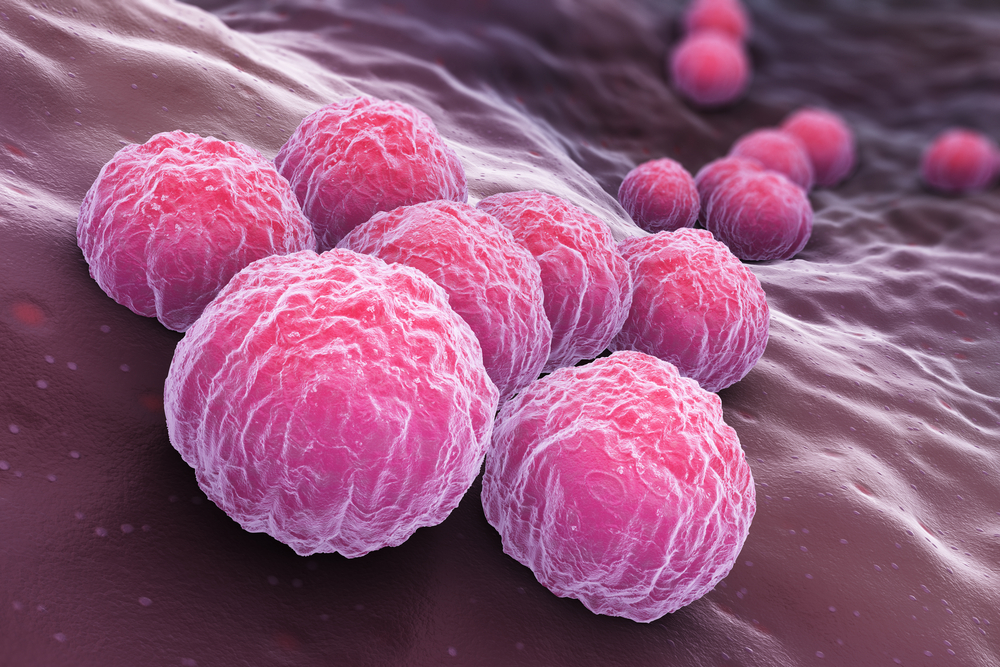Sexually transmitted diseases, if not detected and treated on time, can lead to serious complications and sterility. Chlamydia is transmitted exclusively through sexual intercourse, during unprotected sex and is one of the most common sexually transmitted diseases. Data from the World Health Organisation say that 140 million people worldwide are infected with chlamydia. Chlamydia is caused by the bacterium Chlamydia trachomatis and is very easily treated – with antibiotics. The problem is that the infection is sometimes asymptomatic and remains hidden – infected persons are not even aware of their disease, and can continue to spread it by having regular sex with different partners. Research shows that as many as 50 per cent of men can have this “silent sexually transmitted disease” asymptomatically, while the percentage of women is even higher. Therefore, the risk of infection is very high.

INFECTION MAY BE ASYMPTOMATIC
Chlamydia is mainly transmitted through sexual (vaginal, anal or oral) contact with an infected person’s body fluids – semen, vaginal secretions or blood. The incubation period lasts from one to three weeks, and the symptoms of chlamydia, if there are any at all, can appear only three weeks after contact with the infected person.
In women, chlamydia is manifested by increased secretion, increased bleeding during or outside menstruation and aches in the lower part of the pelvis, symptoms similar to a urinary tract infection, inflammation of the bladder, tingling when passing urine and pain during sexual intercourse. In men, the symptoms can be non-existent, mild to severe, which include tingling or pain when passing urine, frequent urination, pain in the testicles, itching and discharge from the penis. Chlamydia can cause an infection of the epididymis, prostate and swelling of the penis itself, which can then become very painful.
The disease is detected by a simple swab test, which should become a routinely performed test in sexually active people who are not in a monogamous relationship. The presence of bacteria is determined by using a body fluid sample. Swabs for women are usually done for chlamydia, mycoplasma and ureaplasma; in addition to vaginal swabs, there is also a cervical swab for additional pathogens. In men, a urethral swab is done for lab tests. When a doctor – a gynaecologist for women and a urologist for men – determines the presence of chlamydia infection, it is very easily and quickly treated with antibiotics that the doctor prescribes. During treatment, the patient must abstain from sexual intercourse and the full course of antibiotics has to be taken to ensure that the infection does not return.

SYMPTOMS AND TREATMENT
If left untreated, chlamydia can cause infertility in both women and men. It is very important not only that both partners are tested and receive therapy, but also that all persons with whom the patient has been in contact should be informed. Women often become reinfected because their partner has not been treated or has not taken the full course of antibiotics. A worrying fact is that 88 per cent of women who become infected with chlamydia are between 16 and 24 years of age, which indicates a low level of awareness among young sexually active people.
During pregnancy and childbirth, women can transmit the infection to the baby and thus endanger the health and life of the newborn, when in most cases chlamydia causes pneumonia and eye infection. Also, sexually transmitted diseases such as chlamydia can infect amniotic fluid and cause waters to break early and also cause premature birth. A uterine infection and additional complications often occur after childbirth.
Therefore, the following precautions are very important, especially for people who change partners often:
- Be sure to use a condom during sexual contact, including anal and oral sex
- Be tested regularly for sexually transmitted diseases
- Listen to your body and react to any changes
- Eat healthy foods and strengthen your immunity
- Strengthen your reproductive health, inform yourself and, if necessary, seek help without shame or hesitation.
CHLAMYDIA AND STERILITY
Even after healing, this sexually transmitted disease can have consequences, such as fertility problems, a reduced sperm count in men and reduced immunity. In women, chlamydia can damage the fallopian tubes and increase the risk of ectopic pregnancy.
Research has shown that chlamydia infection in couples can last up to four years, because in men it acts as a kind of “reservoir”. In men the infection initially affects the urinary tract, i.e. the urethra, and later the infection progresses to the epididymis and testicles. But research shows that chlamydia can survive in the prostate even after the end of therapy and thus affect the reduction of the number and motility of sperm. Also, chlamydia is responsible for subsequent disorders of the male reproductive system, frequent occurrence of epididymitis (an inflammation of the testicles), orchitis, prostatitis, testicular atrophy and azoospermia. What gives cause for concern are the results of a study that mentions that antibodies to chlamydia were found in testicular tissue, although none of the patients had ever had symptoms or a diagnosis of this sexually transmitted disease. The tested men were sterile, with a small or non-existent sperm count, and chlamydia was found in 45.3% of the subjects. This established that the infection could possibly inhibit sperm development in the testes. Although chlamydia is not usually detected by testicular biopsy, it was also present in men where it was not detected by a urine test.
Although chlamydia is a disease of both sexes, it affects women more because it more drastically destroys their reproductive tissue. In women, chlamydia causes pelvic inflammatory disease, obstruction or scarring in the fallopian tubes. As the highest incidence of infection is found in very young girls, already from the age of 16, the risk of sterility is even higher because the reproductive organs are not yet properly developed at that time. Premature sexual contacts and unprotected sex drastically increase the possibility of a girl contracting chlamydia, but also other sexually-transmitted pathogens, such as gonorrhoea, candida or HIV. Disrupted microbiome in the genital tract also increases the possibility of infection. Each subsequent re-infection contributes to the risk of fallopian tube obstruction and sterility. Even if pregnancy occurs, the consequences of chlamydia often cause complications – ectopic pregnancy, miscarriage, chorioamnionitis (infection of the amniotic fluid), premature rupture of the amniotic fluid, premature birth, as well as consequences for the newborn: low birth weight, bacteria in the blood, chest infection, cerebral cortex infection or death. Some reports state that chlamydia infection also increases the risk of cervical cancer, regardless of the human papilloma virus.
Some studies have proven that chlamydia may have a negative effect on fertility by triggering an autoimmune response to semen in both sexes. In women, constant exposure to chlamydia can cause a direct inflammatory response in the cervix or in the uterine endometrium.
When it comes to chlamydia, caution is always advisable. In addition to routine protection, it is always good to work on your own immunity and strengthen your reproductive health. In this, women are helped by the completely natural Femisan A, which is available as drops or capsules. Alfa Aktiv takes care of men: these natural capsules strengthen a man’s fertility, increase immunity and protect the heart. With increased awareness, precautions and Herb Svet preparations, reproductive health and fertility can be preserved.


